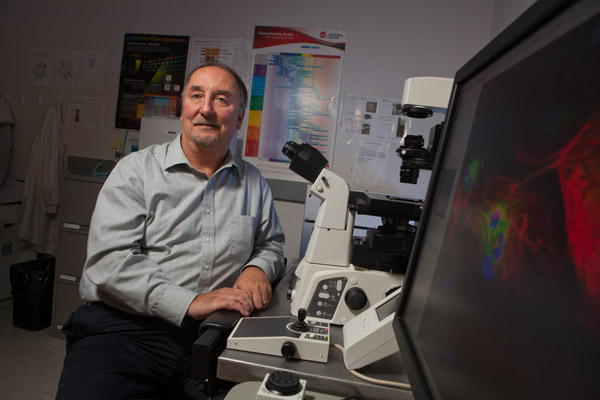Lacto-N-fucopentaose-III (LNFPIII) ameliorates acute aberrations in hippocampal synaptic transmission in a Gulf War Illness animal model

Approximately one-third of Persian Gulf War veterans are afflicted by Gulf War Illness (GWI), a chronic multisymptom condition that fundamentally presents with cognitive deficits (i.e., learning and memory impairments) and neuroimmune dysfunction (i.e., inflammation). Factors associated with GWI include overexposures to neurotoxic pesticides and nerve agent prophylactics such as permethrin (PM) and pyridostigmine bromide (PB), respectively. GWI-related neurological impairments associated with PB-PM overexposures have been recapitulated in animal models; however, there is a paucity of studies assessing PB-PM-related aberrations in hippocampal synaptic plasticity and transmission that may underlie behavioral impairments. Importantly, FDA-approved neuroactive treatments are currently unavailable for GWI. In the present study, we assessed the efficacy of an immunomodulatory therapeutic, lacto-N-fucopentaose-III (LNFPIII), on ameliorating acute effects of in vivo PB-PM exposure on synaptic plasticity and transmission as well as trophic factor/cytokine expression along the hippocampal dorsoventral axis. PB-PM exposure resulted in hippocampal synaptic transmission deficits 48 h post-exposure, a response that was ameliorated by LNFPIII coadministration, particularly in the dorsal hippocampus (dH). LNFPIII coadministration also enhanced synaptic transmission in the dH and the ventral hippocampus (vH). Notably, LNFPIII coadministration elevated long-term potentiation in the dH. Further, PB-PM exposure and LNFPIII coadministration uniquely altered key inflammatory cytokine and trophic factor production in the dH and the vH. Collectively, these findings demonstrate that PB-PM exposure impaired hippocampal synaptic responses 48 h post-exposure, impairments that differentially manifested along the dorsoventral axis. Importantly, LNFPIII ameliorated GWI-related electrophysiological deficits, a beneficial effect indicating the potential efficacy of LNFPIII for treating GWI.
Kyle A Brown, Collin J Preston, Jessica M Carpenter, Helaina D Ludwig, Thomas Norberg, Donald A Harn, Nikolay M Filipov, John J Wagner. Brain Res. 2021 May 4;147513. doi: 10.1016/j.brainres.2021.147513.
